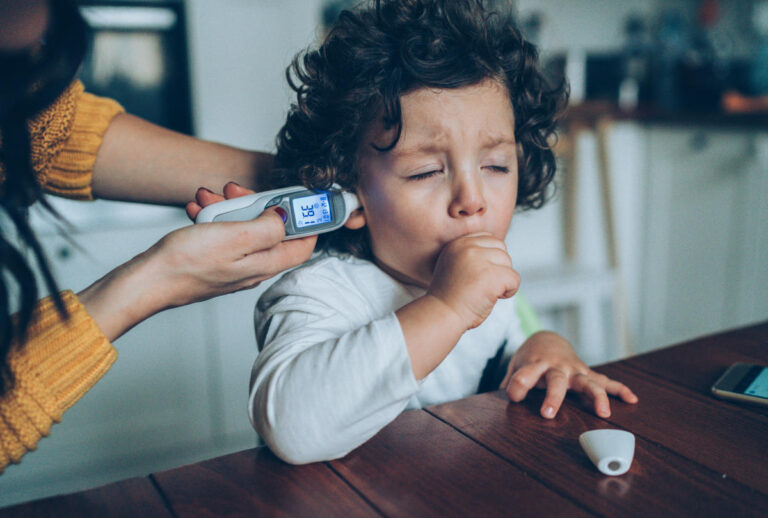New Mpox Variant Clade IB Detected in London: What You Need to Know
New Mpox Variant Clade IB: Key Insights from London
The world of health is always swirling with new information, and sometimes, it can feel a bit overwhelming. Recently, London made headlines with the detection of a new Mpox variant, known as Clade IB. You might be scratching your head and wondering what exactly that means for you. But fear not! In this article, we’ll unravel the layers of this recent development and provide you with all the essential information.
What is Mpox?
Before diving into the nitty-gritty of Clade IB, let’s establish some groundwork. Mpox, formerly known as monkeypox, is a viral disease that can cause a range of symptoms, from fever and swollen lymph nodes to a distinctive rash. While historically less recognized than its cousin—the smallpox virus—Mpox is no less significant.
In 2022, we witnessed a surge in cases beyond traditional endemic regions, leading health authorities to implement new public health measures. Knowing about the disease itself helps in understanding why the emergence of a new variant is something to pay attention to.
The Rise of Variants: Why They Matter
Most of us have heard the term “variant” tossed around quite a bit lately, particularly in the context of COVID-19. Variants represent slight alterations in a virus’s genetic make-up. These changes can affect transmissibility, severity of illness, and how effective vaccines are against the virus. Understanding variants like Clade IB is crucial because:
- They can influence how the disease spreads.
- They might lead to changes in vaccine effectiveness.
- They can prompt updates to public health responses.
Clade IB: What’s Different?
Now that we’ve set the stage, let’s discuss the newly identified Clade IB variant. This particular variant was detected in London, and that alone raises eyebrows, given the city’s role as a global hub where diseases can quickly spread. As of now, scientists are busy studying this variant to determine how it differs from previous strains.
So, what makes Clade IB stand out?
- Genetic mutations: Variants like Clade IB can have specific mutations that allow them to bypass the immune response differently or make them more contagious.
- Transmissibility: Initial reports suggest that this variant might have heightened transmissibility, which is always a crucial factor in managing outbreaks.
- Potential impact on immunity: There’s ongoing research to ascertain how well existing mpox vaccines will perform against this new variant.
Understanding Transmissions and Impact
A big question many of us have is, “Can I get infected with Clade IB?” Let’s break this down!
Transmission Dynamics
Mpox is primarily spread through direct contact with infected bodily fluids, skin lesions, or respiratory droplets. The emergence of Clade IB might alter these dynamics, but it won’t transform the fundamental routes of transmission. Here’s what you need to know:
- Close contact: This variant will likely continue to spread in the same way through close physical contact. So, avoiding close contact with anyone showing symptoms remains essential.
- Environmental factors: While Clade IB itself won’t create new forms of transmission, factors like crowded indoor spaces can still increase risk. This is particularly pertinent in places with poor ventilation.
Symptoms to Watch For
If you’re wondering whether you’re at risk or have been exposed to Clade IB, here are some symptoms to keep an eye on:
- Fever: One of the first signs you may notice.
- Swollen lymph nodes: A telltale indicator of infection.
- Rash: Typically, the rash starts out flat but can progress to raised lesions.
If you develop these symptoms, it’s crucial to seek medical advice promptly.
Public Health Response
With this new variant entering the picture, how are health authorities responding? Here’s a look at the measures being put into place:
- Increased Surveillance: Authorities are ramping up testing and monitoring efforts to quickly identify new cases of Clade IB.
- Public Communication: Clear, transparent messaging is essential for keeping the public informed.
- Vaccination Campaigns: There may be a push for more vaccinations to ensure that those at risk are adequately protected.
Personal Responsibility
While public health measures play a critical role in combatting the spread of Mpox, individual actions are just as important. Here are some steps you can take:
- Limit Close Contact: Especially with people who exhibit symptoms.
- Practice Good Hygiene: Regular hand washing can dramatically reduce your risk.
- Stay Informed: Keep abreast of updates from legitimate health resources.
What This Means for You
Let’s translate all this information into something actionable. The emergence of Clade IB doesn’t mean you should panic, but it does mean you should be vigilant. Here’s a summary of what you should take away:
- Be Aware: Understanding the risks and transmission routes of this new variant is vital.
- Take Precautions: Simple measures can help keep you and your loved ones safe.
- Stay Connected: Maintain an open line of communication with healthcare providers if you feel unwell.
Conclusion
The detection of the new Mpox variant Clade IB in London is a reminder of the ever-evolving landscape of infectious diseases. While the situation requires our attention, it doesn’t mean we should live in fear. By staying informed, practicing sound hygiene, and being proactive, we can navigate these challenges effectively.
Remember, knowledge is power! Equip yourself with the information necessary to make the best decisions for your health and community.
FAQs
1. What is Mpox?
Mpox, formerly monkeypox, is a viral infection that causes a range of symptoms, including fever and a distinctive rash.
2. How does Clade IB differ from previous Mpox strains?
Clade IB has been reported to show mutations that may affect transmissibility and immunity, but further studies are needed to understand its full impact.
3. How is Mpox transmitted?
Mpox is primarily spread through contact with infected bodily fluids, skin lesions, or respiratory droplets from an infected person.
4. What should I do if I have Mpox symptoms?
If you develop symptoms like fever, swollen lymph nodes, or rash, contact a healthcare provider for guidance and testing.
5. Are current vaccines effective against Clade IB?
Ongoing research is being conducted to determine the effectiveness of existing mpox vaccines against Clade IB and any necessary adjustments that may be needed.







